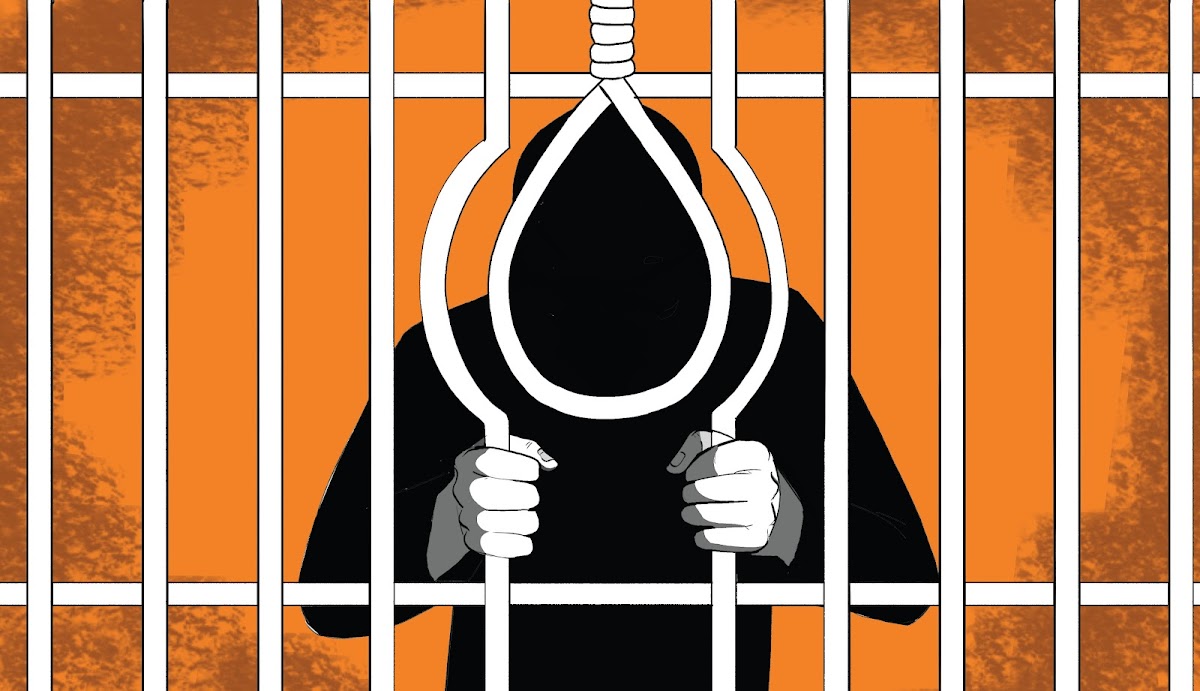
Photo credit: The Star Kenya
LATEST OP-ED: Hoyle & Jabbar - Death penalty doesn’t deter crime
- DPP in the Media
- 26 Jan 2023
This op-ed was originally published in The Star Kenya, 26 January 2023, exploring the key findings of our latest research report. Read the online version here.
In Summary
- Just one per cent of the prisoners we interviewed said they had known that the death penalty was an available punishment
- In Kenya, our research shows those on death row are not necessarily the worst of the worst; over half had been convicted of a non-fatal offence.

Last June, we visited Nairobi to launch a survey of Kenyans’ attitudes towards the death penalty – a sentence that remains available in Kenyan law and is still handed down by the courts, although no one has been executed since 1987.
That survey found that support for this ultimate punishment is relatively weak: just 51 per cent of the public said they backed its retention, and only a third said it should “definitely be kept”. Moreover, 40 per cent of retentionists said that if there was evidence that wrongfully convicted people could be executed as they had not had a fair trial, their views would shift and support for capital punishment would fall to just 28 per cent.
This week we published a new report that suggests the risk of wrongfully convicted people being sentenced to death is real. It also undermines the two key rationales for retention of the death penalty – retribution and deterrence.
Working with the Kenya National Commission on Human Rights, we interviewed a representative sample of 671 prisoners in 12 prisons across Kenya (33 of them women) sentenced to death for murder (44 per cent of the total) and robbery with violence (56 per cent). Just over a quarter had had their sentences commuted to life.
The few studies of prisoners sentenced to death in other jurisdictions, such as India, suggest they are typically the most disadvantaged and vulnerable. Our report finds this is also true in Kenya. At the time of their offence, most of our sample were not in full-time employment, and many were in precarious, low paid work, although 89 per cent of them were trying to support dependants. Not surprisingly, over a third were in debt.
Our previous study found that most Kenyan ‘opinion formers’ were gravely concerned about the lack of legal protection for those charged with capital crimes. The new report suggests their fears were well-founded: many in our sample claimed they were denied rights that should be provided to all criminal suspects and defendants, such as the right not to be compelled to make a confession.
More than half were not able to communicate with a lawyer and the right to remain silent of just under half had not been respected, and they may therefore, under coercive conditions of detention, have made incriminating statements about themselves.
Over half said they were subjected to psychological forms of torture, more than a third (37 per cent) to physical abuse and almost a quarter (23 per cent) were denied medical attention. There is a wealth of research suggesting that evidence obtained by police under such conditions can be unreliable, and likely to lead to wrongful convictions – and the risk that innocents may be sentenced to death.
Moreover, this risk is amplified by our findings that a minority of the prisoners claimed not to have been legally represented at trial. In Kenya, until 2016, while those charged with murder were entitled to state-funded legal representation, this was not a right for those charged with robbery with violence.
Hence, it may not be surprising that a third (34 per cent) of those charged with robbery did not have access to a lawyer at trial. However, six per cent of those convicted of murder also claimed not to have had legal representation.
As for deterrence, our data suggest that the necessary conditions were not in place. To be deterred by the death penalty, people must know both that the death penalty is the punishment for their offence and that it is likely that they will be convicted and sentenced to death.
Then they must make a rational decision that the benefits of committing the offence are outweighed by the potential punishment. However, just one per cent of the prisoners we interviewed said they had known that the death penalty was an available punishment, and only four per cent of those convicted of robbery and eight per cent of murder had thought about the possibility they might be sentenced to death. If they had not known they ran this risk, it must surely follow that the possibility could not have deterred them.
Retribution as a justification for capital punishment demands that the sentence is reserved for the most heinous offenders, and the most serious offences. In Kenya, our research shows those on death row are not necessarily the worst of the worst; over half had been convicted of a non-fatal offence.
Almost all had little or no formal education and were of low social and economic status – the most disadvantaged and vulnerable. As a consequence, they found themselves caught up in a criminal justice system that clearly offered inadequate legal protection putting them at a high risk of being wrongly convicted. This is inevitably of greater concern in a state that retains the death penalty.
Authors
Parvais Jabbar is Co-Executive Director of The Death Penalty Project, UK
Carolyn Hoyle is professor of Criminology and Director of The Death Penalty Research Unit, University of Oxford.

















